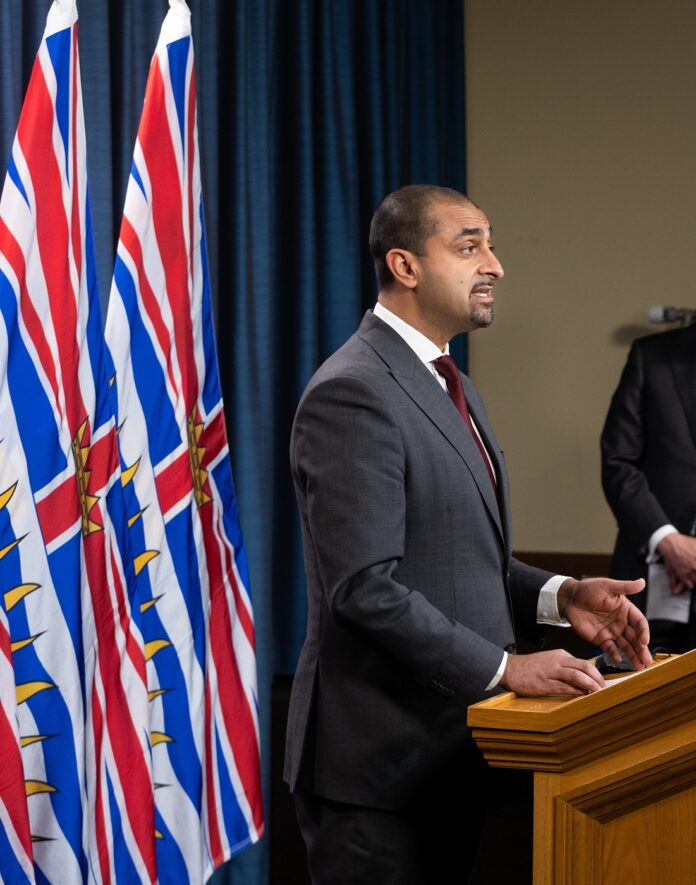THE University of British Columbia (UBC) is taking steps to improve mental-health and addiction treatments with support from the BC Knowledge Development Fund (BCKDF).
“B.C.’s greatest asset is our people, and that’s why we continue to invest in infrastructure and research that will keep British Columbians healthy and safe,” said Ravi Kahlon, Minister of Jobs, Economic Development and Innovation, on Thursday.
“The University of British Columbia is a research powerhouse with students and researchers leading the way with new and innovative solutions across fields, such as mental health and wellness, that will improve the lives of people throughout B.C.”
The Government of B.C. is supporting research at post-secondary institutions with more than $560,000 to help lead the way to more effective mental-health treatments through the BCKDF.
Students and faculty at UBC are using the equipment funded by the BCKDF to conduct research with real-world implications, from child and youth mental health, concussions, sexuality and well-being, and treatment for opioid-use disorder.
For example, UBC researcher Eugenia Oviedo-Joekes is the first in Canada to be named as Tier 1 Canada research chair in person-centred care in addictions and public health and is being supported by $125,000 from the BCKDF to buy equipment for this research. The research will improve the health of people living with opioid-use disorder by optimizing the uptake and effectiveness of innovative new treatments.
“We are pleased to have received funding through the BC Knowledge Development Fund to further our research in addictions and public health,” Oviedo-Joekes said. “By extending person-centred addiction research we are strengthening B.C.’s capabilities and development of programs that best meet the unique needs of individuals and improve their health outcomes.”
Funding from the BCKDF has also supported research infrastructure for the following projects at UBC:
* Samantha Dawson received $238,819 for the Sexuality and Well-being (SWell) Laboratory.
* Noah Silverberg received $125,000 for persistent symptoms after concussion: psychological mechanisms and treatment.
* Anne Gadermann received $80,000 for a programmatic data platform for bio-eco-social population-level research on child and youth mental health in B.C.
The BCKDF is a contributor to the objectives of the StrongerBC Economic Plan. It helps rebuild and grow the economy by improving B.C.’s productivity and competitiveness. Other benefits include potential commercialization, spin-offs and patents, as well as discoveries that directly affect the lives of British Columbians in medicine and the management of the environment.
By investing in research infrastructure projects, the B.C. government is continuing to support post-secondary institutions to build toward a more innovative, sustainable, and inclusive future.
Santa J. Ono, President and Vice Chancellor, UBC, said: “Investing in and prioritizing mental health has been a key commitment at UBC, whether it’s been on our campuses or in B.C. communities. This funding from the BC Knowledge Development Fund will allow UBC researchers to access the infrastructure they need to further work in areas, such as child and youth mental health, sexual health, brain injury and treatments for opioid-use disorder, furthering B.C.’s capacity to create a healthier future.”
To learn more about the B.C. Knowledge Development Fund, visit: https://www2.gov.bc.ca/gov/













